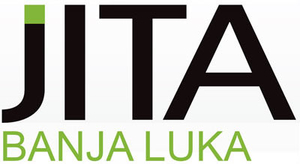JITA is committed to upholding the integrity of the work we publish. The value of academic publishing relies on everyone involved behaving ethically. The following points are only intended to give a broad overview and are not exhaustive. We encourage our authors and editors to refer to the Committee on Publication Ethics (COPE) website. JITA believes strongly in maintaining an accurate academic record and follows COPE’s Principles of Transparency and Best Practice in Scholarly Publishing. If you are unsure of a journal-related ethical issue, you might well find the answer in COPE’s wealth of materials, but if you have any questions or concerns please also feel free to contact the Editor of the Journal, or the JITA Publishing Editor, or you can email us.
JITA is committed to:
- maintaining the editorial independence of journal editors
- supporting journal editors to run their journals ethically and transparently
- maintaining an accurate and transparent academic record, including publishing corrections and retractions when necessary
Authors
Authors should ensure that:
- their work is original and written by them
- their work has not been previously published and has been submitted only to the journal
- where material is taken from other sources (including their own published writing) the source is clearly cited and that where appropriate permission is obtained
- their work does not infringe on any rights of others, including privacy rights and intellectual property rights
- their data is true and not manipulated
- their data is their own or that they have permission to use data reproduced in their paper
- any real or apparent conflicting or competing interest is clearly stated on submission of their paper (this would include funding assistance)
- they adhere to all research ethics guidelines of their discipline, particularly where human or animal subjects are involved
- they contact the Editor to identify and correct any material errors upon discovery, whether prior or subsequent to publication of their work
- authorship of the paper is accurately represented, including ensuring that all individuals credited as authors participated in the actual authorship of the work and that all who participated are credited and have given consent for publication
Above all, authors should be transparent. For example, if an author is not sure whether her paper is original (for instance, whether it might constitute duplicate publication), she should inform the journal’s editor. If the editor decides it is appropriate to publish, the paper itself should state clearly any potential overlap.
Reviewers
Reviewers must:
- maintain the confidentiality of the review process
- refrain from contacting the authors directly without permission of the journal
- immediately alert their journal editor of any real or potential competing interest that could affect the impartiality of their reviewing and decline to review where appropriate
- conduct themselves fairly and impartially
We are aware, of course, that academics will come from a particular school of thought and/or may have strong ties to a particular interest. All we ask is that reviewers strive to act fairly. If in doubt about whether a conflict exists, a reviewer should be transparent and seek the views of the journal editor.
Editors
Editors should:
- maintain and promote consistent ethical policies for their journals
- oversee and act to enforce those policies as needed in a fair and consistent manner
- ensure the confidentiality of the review process
- exercise the highest standards of personal integrity in their work as editor of the journal, recognising and planning for instances where they could have a competing interest or the appearance of a competing interest
- work with authors, reviewers, and Editorial Board members as necessary to ensure they are sufficiently advised regarding their journals’ ethics and publishing policies and that the journal’s stewardship on ethical matters is fair, unbiased, and timely
Everyone including Editorial Boards
- We should promote fairness and equality and oppose discrimination
- We should promote the transparency of and respect for the academic record
- We should respect the confidentiality of others
- We should be transparent about real or apparent competing interests




